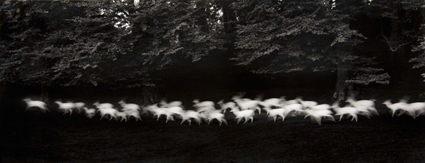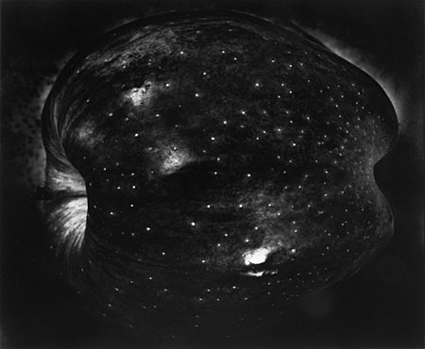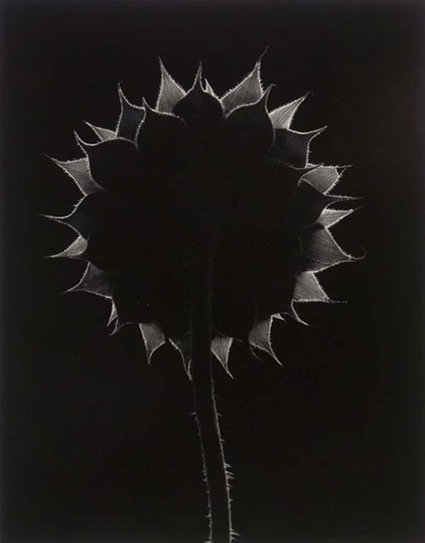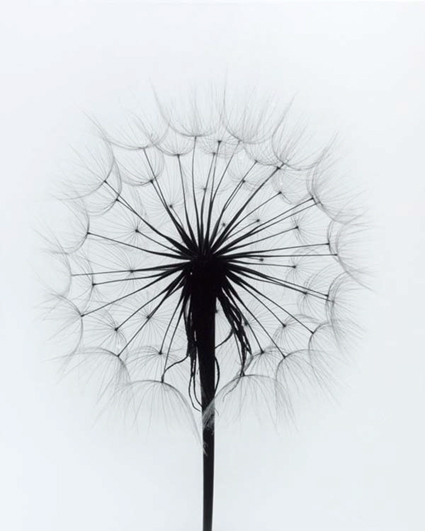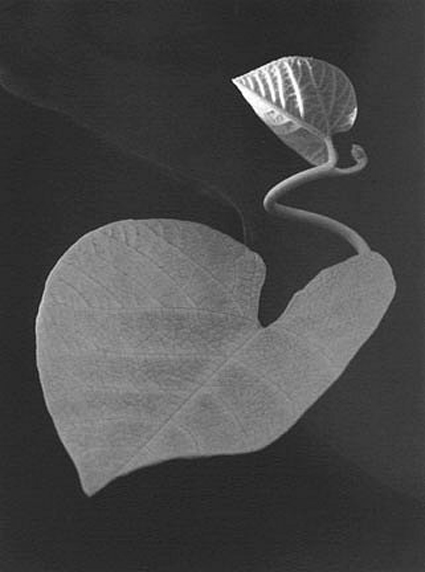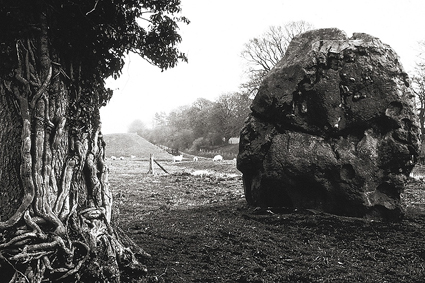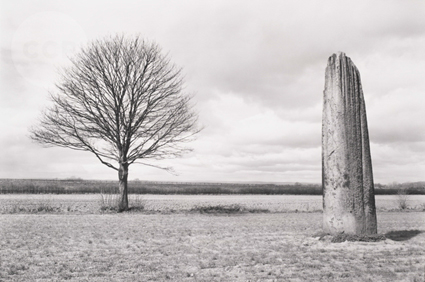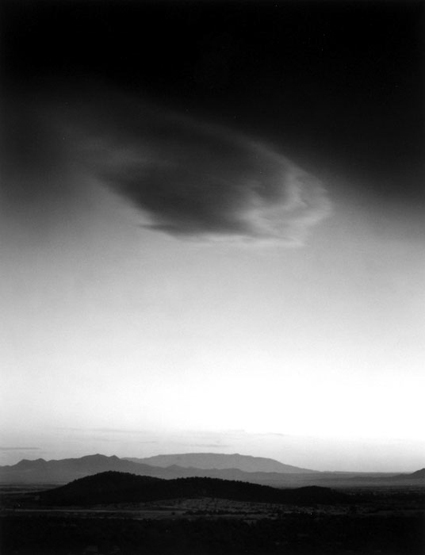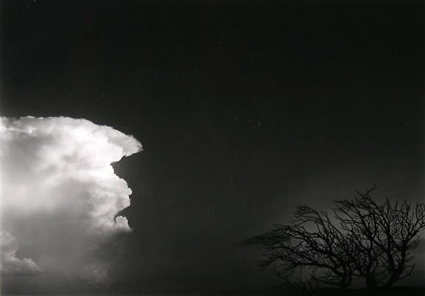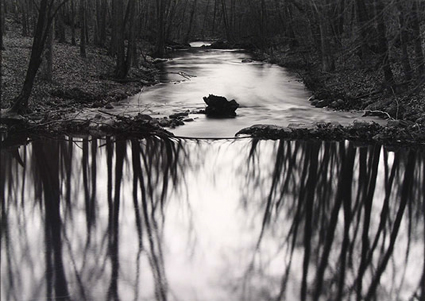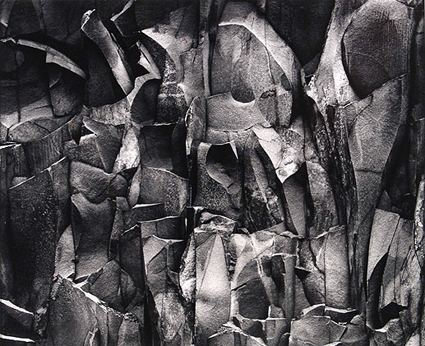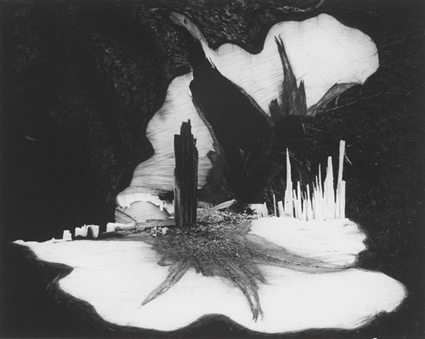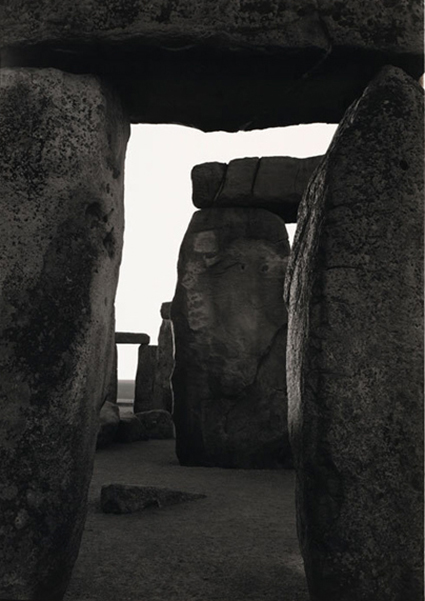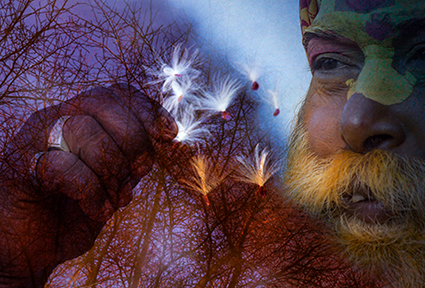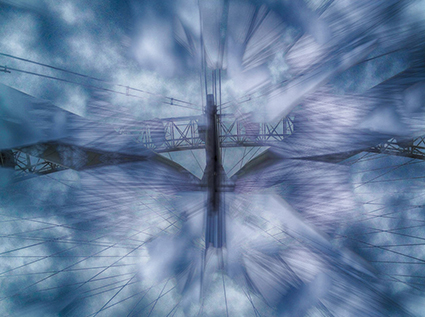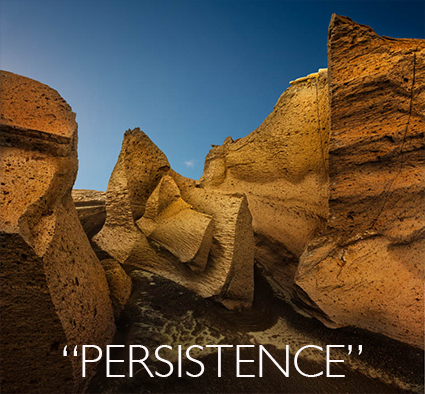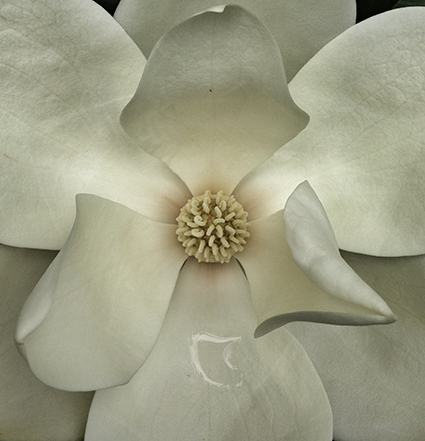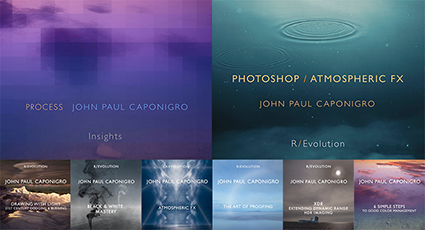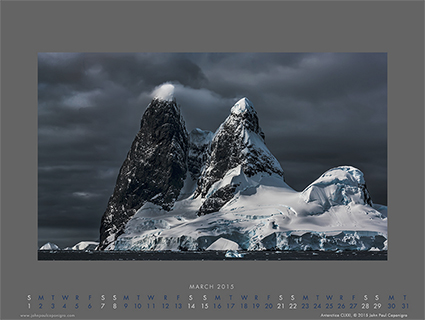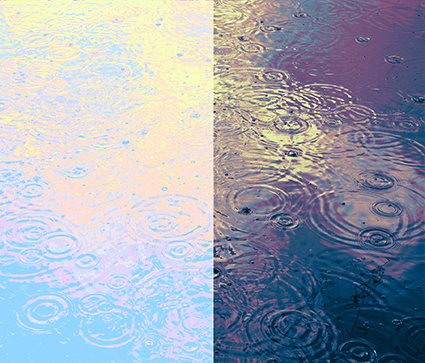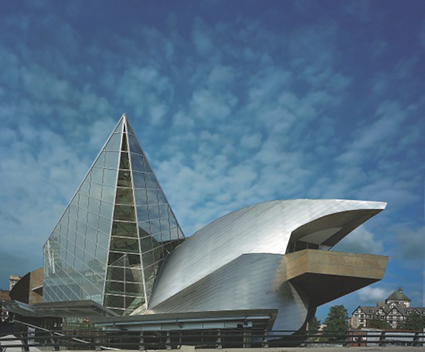
Image courtesy of Taubman Museum
This is a guest post by Sam Krisch, a John Paul Caponigro Next Step Alumnus who lives and works in Roanoke, Virginia. He has curated an exhibition entitled Paul Caponigro and John Paul Caponigro: Generations which will be showing at the Taubman Museum of Art through March 28, 2015. An exhibition of his work Sam Krisch: Elements will open at Virginia Tech’s Center for the Arts on December 5, 2014.
About 18 months ago I was asked to join the staff of the Taubman Museum of Art in Roanoke, Virginia as an adjunct curator of photography. The position was part-time and my job was to act as a proposer and organizer of exhibitions and to meet with others in the curatorial staff to discuss and plan our future programs. The Taubman Museum opened in 2008 and was a successor to several art museums in Roanoke, a small railroad heritage city in the Blue Ridge Mountains of Virginia. The facility consists of nine galleries, an exploratory gallery for children, a theatre and an auditorium. It shows all kinds of art including painting, sculpture, ceramics, decorative arts, film, folk art and photography. In recent years it has exhibited works by Dorothea Lange, Edward Burtynsky, Alan Cohen, Civil Rights Photographers of the 1960s, Roanoke Times Photojournalists and several local photographic artists. The notes for one of its current exhibitions “Beg, Borrow and Steal” states that photography “plays a significant role in much of the work, which is represented in the exhibition by artists John Baldessari, Barbara Kruger, Sherrie Levine, Robert Longo, Richard Prince, David Salle, and Cindy Sherman; all of whom are using manipulated photographic images to create dense collages or appropriating stereotypical portraits in humorous ways.”
It has been a valuable experience. I have learned that curating is a basic skill that all artists need to use in evaluating their work. We need to examine our artistic influences, create collections and bodies of work, see their evolution over time. Peer review also is vital in artistic growth and again is another data point in the personal curating process. Professional curating is an extension of this skill.
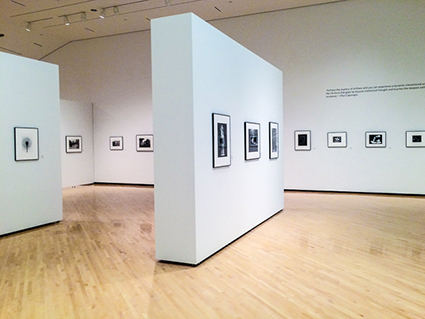
The Speed Curators
For the past several years I have taught workshops in digital creativity. We use mobile phones as a basis for this practice, but we always start with an exercise in “speed curating.”This is valuable because people start to learn the elements that attract their eye and verbalize those aspects. Recently, I have had the pleasure of participating in leading continuing education programs for art teachers at the Taubman Museum. Some of it has been adapted from my mobile photography courses, but the speed curating exercise is a vital part of the day.
The exercise begins with about 200 5”x 5”of my iPhone prints spread out on tables in the library. I tell the group “I am setting a timer for 6 minutes. During this time you can look BUT YOU MAY NOT touch the images. Don’t touch. Your assignment will be to choose between 6-8 images that work together and that you will present as if you are a gallery or museum curator. After that you will have 6 minutes to collect your images and then we will take them in the next room.”
It is always interesting to see the personalities at play. Some aggressively grab images and others hang back only to be disappointed that some of their favorites have already been taken. They have to either rethink their collections or find similar images. This mimics a curator’s dilemma of sometimes not being able to get all the works he or she wants and having to substitute work.
In the board room we talk about why we have chosen our images. The art teachers are used to talking about their own work as well as the work of their students. Each has a different idea and a different style. Some strictly look for artistic elements such as composition, contrast, color and form. Others use the images to tell a personal story or struggle that they are working through. Some even use song lyrics or musical references. All bring their own creative views to the collections. The act of rejecting and culling is as valuable as the act of inclusion. The same is true whether curating personal work, a personal collection of other artists, or for an institution.
Campbell Gunn, a fellow alumnus of John Paul Caponigro’s workshops, has created a portable collection of curated work. He finds photographers that he admires and organizes them in a collection on his iPad. Campbell says: “I simply create a dropbox master folder with subfolders for each photographer I am interested in and then as I find images that I think are instructive for my own visual reference library I copy them across. Then I have a Lightroom catalog that I use as a database which then syncs with an iPad app called PhotoMgrPro. The theme is developing ‘visual literacy’ or a ‘pattern language’. As with all languages, if you have a basic vocabulary and understand grammar, you can combine words or phrases to create new sentences (or in this case images) – without falling into the trap of being derivative or repetitive. It helps you find your own voice by understanding what it is in others voices that resonates most.”It is important to note that you should only copy low res images for this collection, keep them for your private use, and don’t copy images from books. Copying images from books is against the law in some countries.
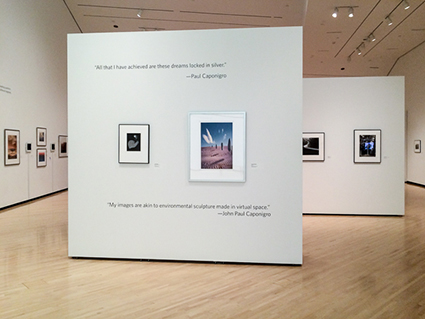
From “Two Generations” to “Generations”
When I started curating I had a number of ideas for photography exhibitions and busily contacted artists and curators from other institutions to attempt to work up presentations for our curating committee. My projects were competing with space and scheduling of other exhibitions in other media. The Taubman Museum keeps variety and balance in its programming and even within each medium is careful not to overdo one type of painting or one type of photography. For example, a fine documentary photography exhibition that may of been available to us was discouraged by the committee because of recent documentary exhibitions. The committee was interested in the Paul Caponigro and John Paul Caponigro exhibition that had shown several times in other institutions and encouraged me to explore this work.
I was delighted because not only has the Caponigros’work strongly influenced my own, but John Paul is my mentor and friend and there was a comfort level that was valuable in planning this exhibition. The Caponigros were very gracious in making their personal collections available to us and sent us a list of the works that had been exhibited.
We found a slot in our gallery schedule that worked and it was one of our larger galleries. Our Deputy Director of Exhibitions and I walked into the gallery and realized that we could have a very sterile show. It is a large room with almost 200 feet of wall space and is an average of 40 feet wide. I saw a long row of father on one wall and a long row of son on the other. The room would have very little flow, very little interest. We needed more work, we needed a better design.
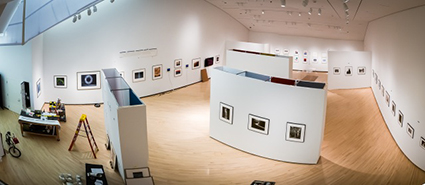
With help from the artists and our Exhibitions staff we came up for a design for the gallery that included temporary interior walls to add interest and variety to the presentation. The walls allow for a dialogue between the two artists. Some of the interior walls have images by father and son that are related, others have a single artist in direct contrast with the other.
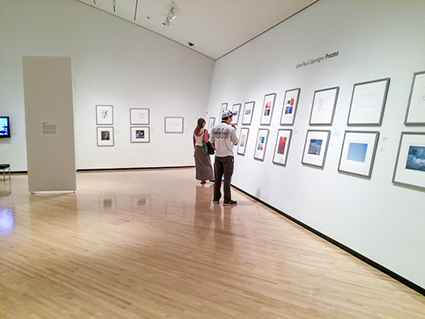
I am a fan of John Paul’s book Process and he had prepared some of the images in that book to form a framed presentation that was ready to display. We thought that it would be very useful for educators to have JP’s thoughts and illustrations on his show in its own separate section. Although the images were set, it became a challenge to provide text within our guidelines for display. Our solution was to take quotes from the book—under fifty words a piece—and let the images and text guide the viewer through that part of the exhibition.
With the addition of the Process materials we had a show that embraced both the artists and the artistic process, the two generations of vision and work, and the generation of ideas. We also designed the exhibition in a way that would help slow people down during their walk through the gallery and stimulate discussion—perhaps even argument—about the merits of each artist’s work and their use of two of photography’s main technologies. It has become an illustration of photography’s history, the creative process, and for many their first exposure to two major artists.
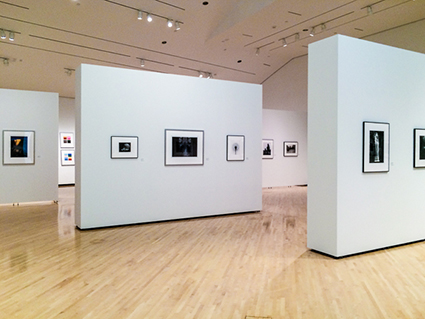
Find out more about Sam Krisch here.
Find more Alumni Success Stories here.
